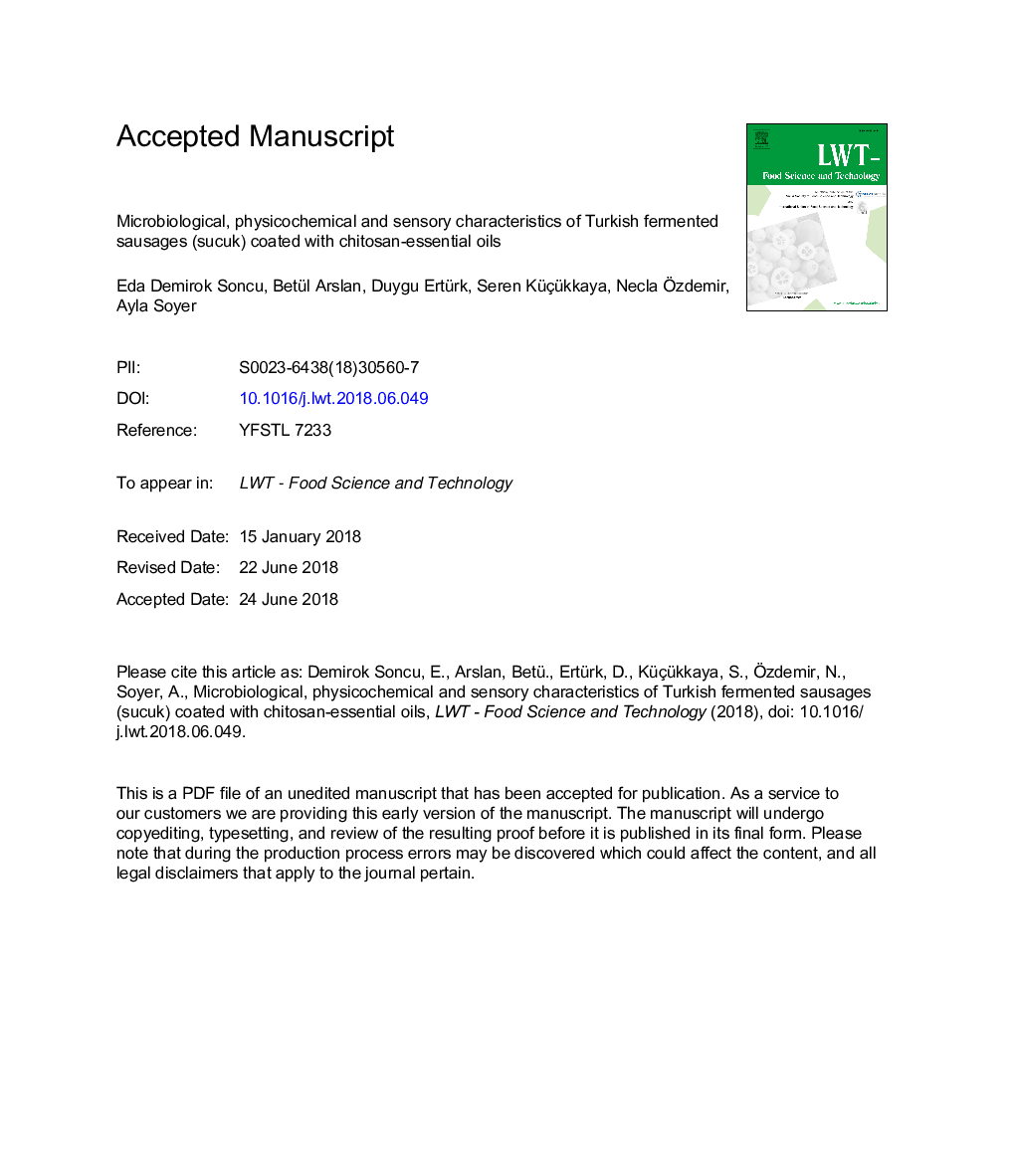| Article ID | Journal | Published Year | Pages | File Type |
|---|---|---|---|---|
| 8890103 | LWT - Food Science and Technology | 2018 | 29 Pages |
Abstract
Superficial mold growth in dry-fermented sausages is generally prevented by synthetic chemicals. However, the use of natural antifungals instead of chemicals has become a crucial research area nowadays as consumer demands have changed towards natural food production. With that said, chitosan solutions (C) enriched with thyme (CT; 0.2-1%) or rosemary (CR; 0.2-1%) essential oils, as natural antifungals, were evaluated to determine their inhibition effects on the surface mold growth in Turkish dry-fermented sausage ripened for 9 days. Additionally, impacts of these solutions on interior microbiota, physicochemical and sensory properties of sausages were investigated. Higher concentrations (0.8% and 1%) of CT and CR significantly inhibited the superficial mold growth. Potassium sorbate and natural antifungals did not affect total aerobic mesophilic bacteria, Micrococcaceae, and lactic acid bacteria counts (Pâ¯>â¯0.05). Enterobacteriaceae, yeast and mold numbers significantly (Pâ¯<â¯0.05) reduced in the sausages with CT and CR treatment at 0.8% and 1% concentrations. 1%CT was 2 fold effective than 1%CR to prevent superficial mold growth. Panelists did not report any negative comment regarding the sausages coated with natural antifungals (Pâ¯>â¯0.05). In conclusion, incorporation of 1%CT or 1%CR into chitosan would be a promising natural antifungal to inhibit surface mold growth in dry-fermented sausages without affecting quality properties.
Related Topics
Life Sciences
Agricultural and Biological Sciences
Food Science
Authors
Eda Demirok Soncu, Betül Arslan, Duygu Ertürk, Seren Küçükkaya, Necla Ãzdemir, Ayla Soyer,
